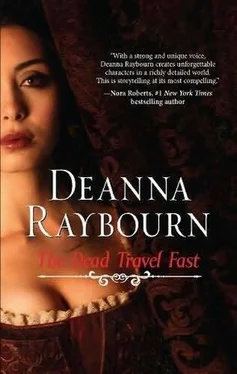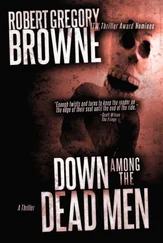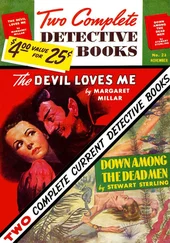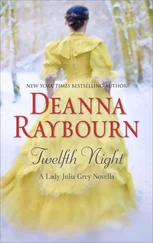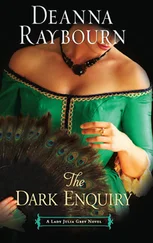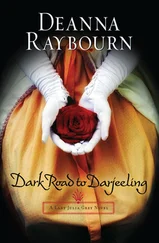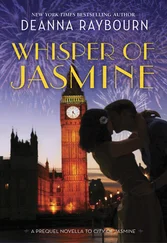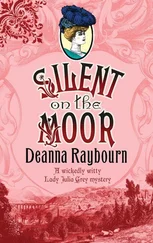I folded my hands together to keep them still. The count spoke first.
“I am glad to see you have suffered no ill effects from your experience, Miss Lestrange,” he said formally. The same could not be said of him. He held a walking stick in his free hand, a heavy affair of ebony more suited to country pursuits than city idleness. He wore a sling at his neck, cradling his arm, and the wound upon his face slashed from brow to temple to cheek. The stitches were even and black, and rather than spoiling his looks, the effect was piratical and dashing. I had little doubt the Parisiennes would find him even more attractive with the addition.
“Thank you,” I replied, and my voice sounded hollow to my ears. “It is good to see you as well,” I added impulsively.
He inclined his head, but there was no warmth in him, only cool appraisal. “I have been apprised of the events that have passed, and I must apologise on behalf of our family that a connection of ours has attempted to harm you so grievously. The fault is entirely ours and we are abject in our sorrow.”
The words were of the flowery sort the Eastern Europeans loved so much, a relic of their days of attachment to the Ottoman Empire, I thought. It was my turn to incline my head to acknowledge the sentiment and I did, gathering in the countess with my gesture to show I did not bear them ill will.
“Would you mind explaining to us why you sought the company of Dr. Frankopan last night?” he asked evenly.
And now we come to it, I thought. I could repudiate my convictions about Cosmina, even now. I had told no one save Dr. Frankopan my thoughts. The objects I had taken from her room were my only proofs of her instability. Without them, it was simply my word to hers, and she was nothing if not clever. It would be an easy thing to turn them all against me. She was, after all, as good as the daughter of the house.
I glanced at her, and she was watching me, her eyes large and sorrowful.
“I was afraid.” I temporised.
The count lifted a brow to suggest disbelief. “Afraid of what?”
I hesitated again. I could say I feared the strigoi ; I could claim I was afraid of them for keeping me locked in my room. I could choose expediency and hope to leave as soon as possible, putting all of the horrors of the place behind me.
Or I could choose to tell the truth and damn the lie.
“I was afraid of Cosmina,” I said boldly, and stirring in the depths of the count’s eyes I saw approval.
The countess gave an indignant sniff, and Cosmina put her hands to her mouth as if to smother a sob. Charles looked frankly astonished, and only Florian and Frau Amsel betrayed no emotion.
“Why were you afraid of Cosmina?” the count asked, leading me gently towards the edge of the precipice.
I looked only at him then, putting the others out of my mind. I spoke only to him, cared only for him.
“I think I always was. She used to fly into terrible rages at school. I told myself I never wanted to be friends with the other girls, but now I think back, I see I was afraid to befriend them-afraid of what she might do. I loved her as a sister, but I see now that I was always afraid, only I did not understand it was fear. I used to work so hard to make certain she was happy. I left off speaking to girls she did not like because I did not wish her to become angry. I studied German instead of French because she wished me to and I wanted to please her because she was my friend. At least, I believed she was. I found a rosary in her possession. It was the only thing I owned of my mother’s and she stole it.”
“Was there anything else?” the count prodded.
“A letter,” I said softly. “A letter addressed to me that I never received. It was stolen from my room and when I discovered it, it had been torn to pieces and sewn back together.”
I dared not look at Cosmina, but she had made no sound of protest. Doubtless she had discovered the objects missing from her room almost as soon as I had taken them.
“If we are to believe you, Miss Lestrange, then Cosmina is at worst a thief. You had only to confront her with the items and they would have been restored to you. Why did you flee?”
I twisted my hands together. They were cold, as cold as they had been when I had lain upon the forest floor, waiting to die.
“Because I was certain she had killed Aurelia. Under her pillow, with my things, I found the carving fork from the dining hall. It has been missing since Aurelia’s death, and if it were compared to Aurelia’s body, I believe the prongs would fit the wounds that killed the girl.” I had seen it as soon as I had held the object in my hands, the two wickedly sharp prongs, a few inches between. If Cosmina had stabbed Aurelia with the thing, it would have rendered a wound precisely the same as a pair of very sharp teeth.
“No!” cried Cosmina. I looked at her then and her expression was one of outrage, her tone that of profound denial. She had been found out, and the shock of it was too much for her to bear. At the sound of her outcry, Tereza burst out sobbing and praying and Frau Graben hastened to calm her. The rest of the group said nothing, but I heard the countess’s hiss of disbelief.
“This is an extremely serious charge,” the count said soberly. “If you believed her to be a murderess, why did you not come forward?”
I flushed painfully. My flight had been foolish and ill-advised, and I had no excuse save that Dr. Frankopan had been sensible and persuasive and I had feared for my life.
“Dr. Frankopan insisted we leave. He said we could accomplish much more by leaving the castle and going directly to the obergespan in Hermannstadt. I believed he meant to help me.”
“And instead he attempted your life,” the count finished softly. My flush deepened.
“I trusted where I ought not to have,” I said.
“And doubted where you ought not to have as well,” he added. For a long moment, he said nothing, merely holding my gaze with his until I dropped my eyes to my lap. “Cosmina, Miss Lestrange believes you killed the maid Aurelia and ought to be brought to justice. What say you?”
I looked at her then, and her expression was blank, her voice soft and low. But under it all, I caught the note of rage, barely suppressed. “I can only say that I am sorry, profoundly sorry, that we have broken trust with one another. I cannot say how her things came to be in my room except that she must have put them there with an eye to discrediting me and blaming me for her own misdeeds.”
Too late I saw the trap, springing neatly about me, catching me in its grim teeth. I could only sit, numbed to the horror of it.
“I did love Theodora, and I believed her my friend, but I see now I was deceived, and every lie she tells carries a seed of truth within it. She did lose a rosary at school, but I restored it to her when I found it and she has had it ever since. I do not know what letter she speaks of, nor have I seen the carving fork since it disappeared from the dining hall, but I think it is quite obvious she placed the things in my room, attempting to discredit me in the eyes of my family. We must thank God that she left her shawl behind when she attacked Count Andrei, or we would never know the depth of her villainy,” she finished viciously.
Her facade was cool and almost entirely composed, but I knew something dark and violent seethed within. I thought of the time it must have taken her to stitch the love letter back together, the anger that must have raged within her as she set each stitch. I thought of the sharp blades of her scissors snapping my silhouetted head from my shoulders, and I knew what I must do.
“It maddens you, doesn’t it?” I said softly. “Even now, you cannot stop thinking about it. You think about it every day, don’t you? He refused you. You are not good enough for him because he knows what you are.”
Читать дальше
Конец ознакомительного отрывка
Купить книгу
